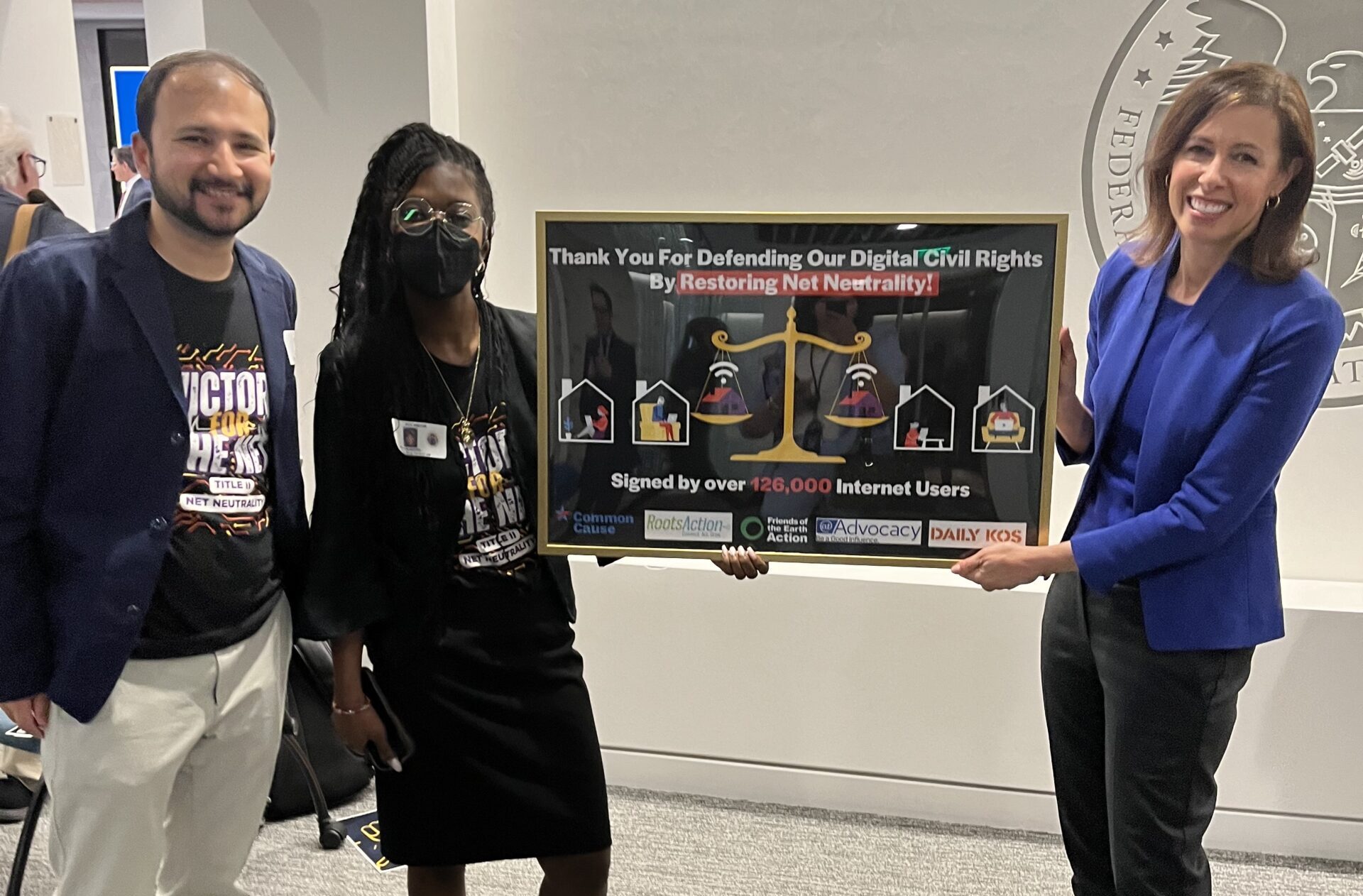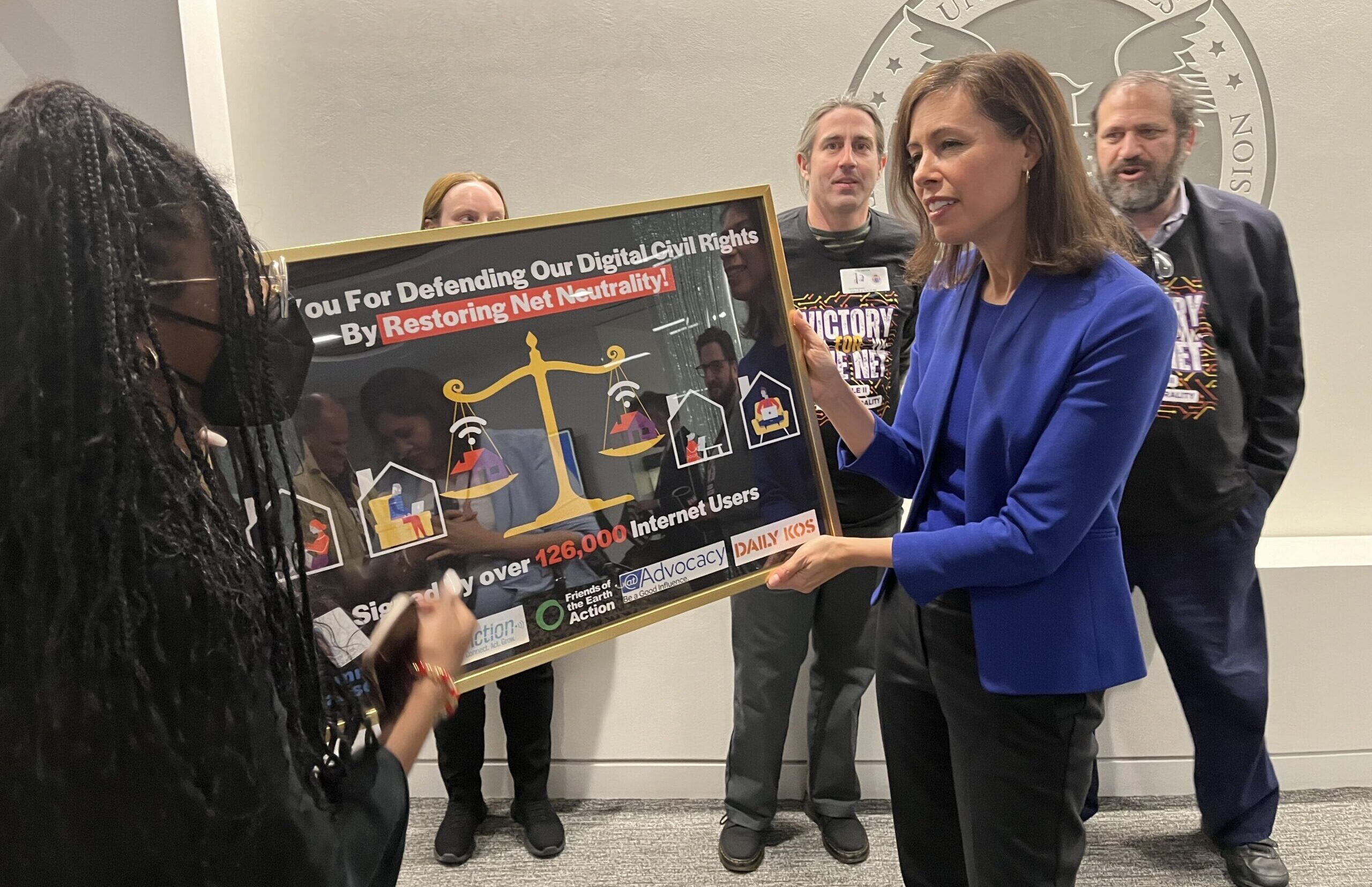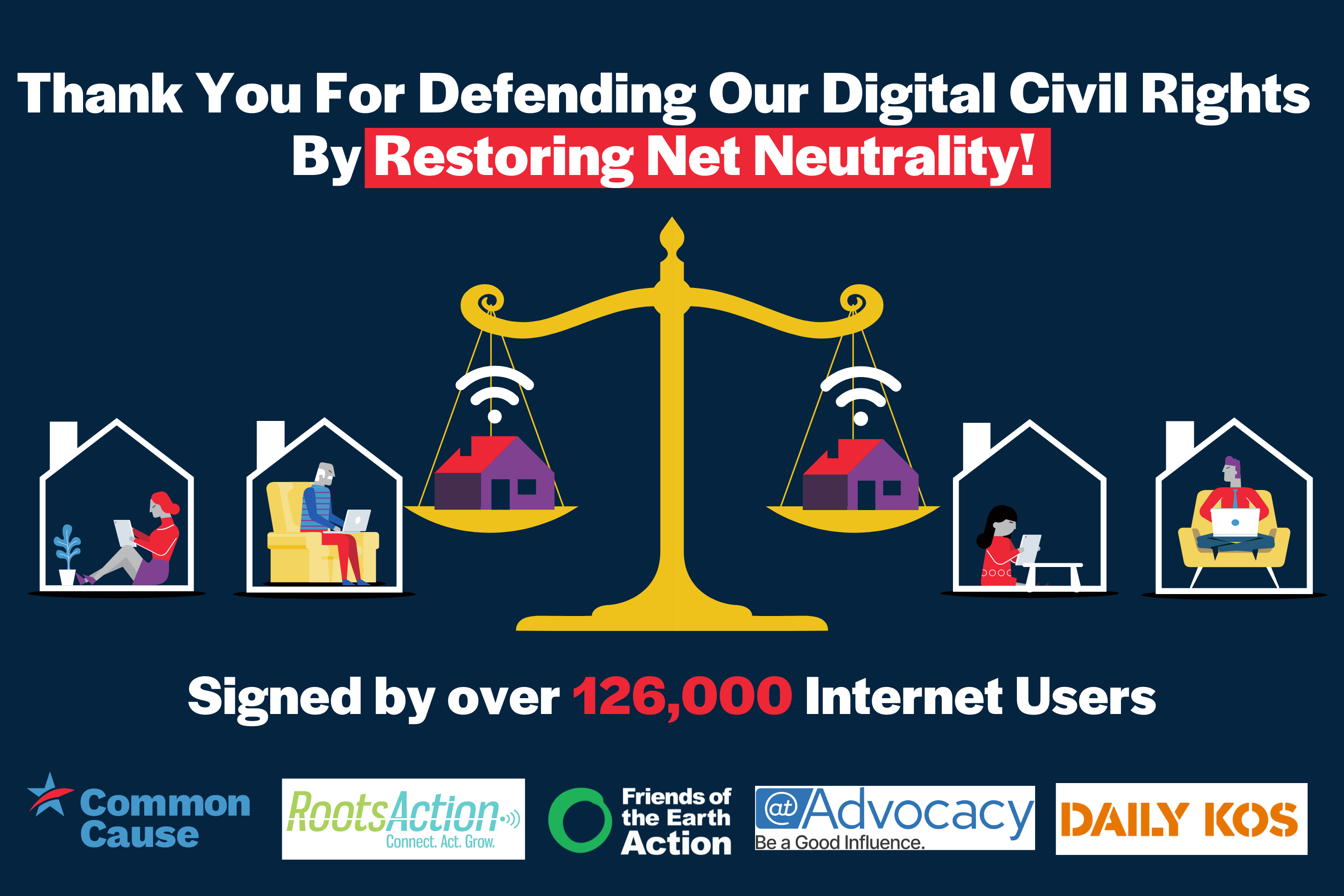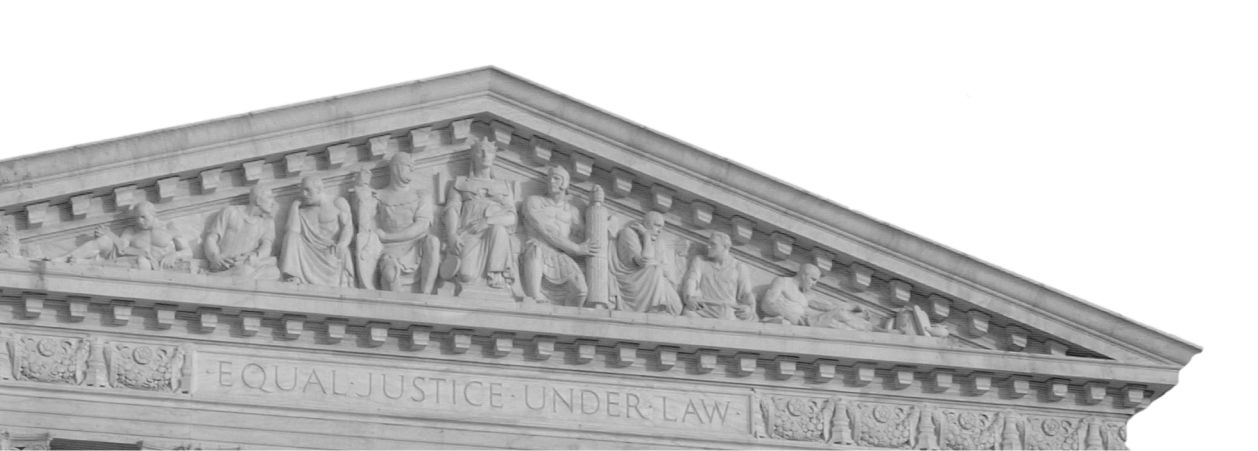An open internet – or net neutrality – is an important step for achieving digital democracy.
Since the repeal of net neutrality in 2017, ISPs have been free to restrict access to online content, prioritize paid targeted advertisements, and sell your personal browsing data. Now the Federal Communications Commission (FCC) has restored our internet protections! Net Neutrality provides Americans with key protections that ensure our right to information access is respected by our Internet Providers.
- No Blocking Access to Online Content
- No Slowing or Speeding Internet Access
- No Paid Prioritization Schemes



